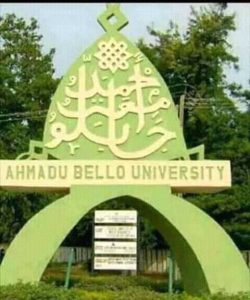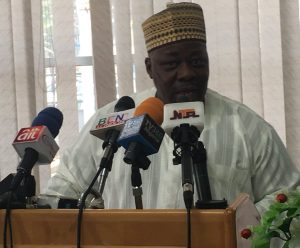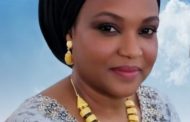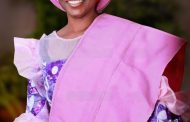By Prof Hassan A. Saliu
Prof. Jibrin Ibrahim marked his 70th birthday on December 2, 2024. He was born in 1954. I was indeed in Abuja that day, but my role as the President made it difficult for me to attend the ceremony. I had a scheduled appointment at the Independent National Electoral Commission (INEC) with three other executive members. That made it impossible for me to attend. I hope Oga Jibo will accept my apology.
The birthday man is everything but not anything without the Ahmadu Bello University (ABU), Zaria, where he schooled and later became a scholar with an ideological flavour. The university was one of the regional universities established in 1962 by the defunct Northern Regional Government under the leadership of Sir Ahmadu Bello, the Sardauna of Sokoto.
In a paper I presented in 2015 at the GAMJI Day celebration held in Ilorin where the late Justice Maman Nasir was the Chairman of the occasion, I made some revelations about the late Sardauna of Sokoto. Two of these are relevant to this tribute as background. Firstly, he was not materialistic during his lifetime, unlike our modern politicians who want to conquer the material world. Secondly, he extremely loved the North and worked tirelessly for its development. One of his signature programmes was the establishment of the Ahmadu Bello University, Zaria, which has done a lot in providing university education to the youths of the North and other parts of the country.
Just as its history has shown notable positivity, it has equally shown that the university has passed through a chequered history in its sixty-two years of existence. One of these phases was when the university was engulfed in a crisis of immense proportions, to the extent of having a unique Sole Administrator in the person of a non-scholar and a retired General in the army, General Maman Kotongora. He approached his assignment with a missionary zeal, confronting all agents of confusion as defined by him. He appropriated all the powers of statutory organs of the university, and his word was law.
 Prof. Jibo Ibrahim was once within the firing power of the Sole Administrator. His offence was being out of the country, and whatever he was doing abroad was of no interest to the General. Prof. Ibrahim and his colleagues, Profs. Mustapha and Ayam, had crossed the red line as defined by the unique head of the university. They were to be punished for that. Consequently, they were relieved of their appointments for overstaying their engagements outside the country.
Prof. Jibo Ibrahim was once within the firing power of the Sole Administrator. His offence was being out of the country, and whatever he was doing abroad was of no interest to the General. Prof. Ibrahim and his colleagues, Profs. Mustapha and Ayam, had crossed the red line as defined by the unique head of the university. They were to be punished for that. Consequently, they were relieved of their appointments for overstaying their engagements outside the country.
The military man on duty at ABU subscribed to the abstract definition of indiscipline. In the University System, however, there is a tendency to subscribe to the graduation of offences to accommodate peculiar circumstances of the system. This was not assimilated by the Abacha’s helmsman at ABU. When the dust later settled in the university, and a recall of sorts was made for the Political Scientists to come back to ABU, they bluntly refused. This background is necessary for our overall appreciation of the subject of this tribute. The experience has played a role in shaping who Prof. Ibrahim has become in the last thirty years.
He schooled in Zaria and obtained his first and second degrees from ABU in 1977 and 1983 respectively. He was a student of two eminent Professors of Political Science, among others, Profs. Oyovbaire and Gambari. For his doctoral degree, he left the shores of Nigeria to obtain it in 1990 from the University of Bordeaux in France. He left the services of ABU as a Reader in the second half of the 1990s.
As a man who cut his teeth in academics during the thriving period of Marxism, he had quite a number of Marxist scholars as mentors, including Profs. Yusuf Bagura, Bala Usman, Patrick Wilmot and Bjorn Beckman, with their varying degrees of attachment to the ideological school. While there is a near-consensus among our Marxist colleagues on who is a liberal scholar or who is generally considered to be from the family of reformist scholarship, there is substantial ground for differentiating those who are considered radical scholars and who are not. Some are more radical than the others. Prof. Ibrahim is a hardcore Marxist in his scholarship and other endeavours. Although he speaks less of Marxist jargon these days, one does not need to stay with him for long before his ideological leanings become apparent.
Prof. Ibrahim occasionally fires salvos that attract rejoinders. I recall his article in Premium Times where his offering got the wrong side of our friend and one of the shinning lights of our discipline, Prof. Okey Ibeanu. As usual, Prof. Ibeanu used the same platform to offer his perspective on the substance of the issues raised about Southeast. On this occasion, Prof. Anselm Odimkalu gave a useful footnote to Prof. Ibeanu’s submission. Most observers are likely to have the impression that he is only an activist. They may be right but he is much more than that. No doubt, he has been a social worker, appearing on many television and radio stations, making profound submissions on Nigerian and international issues and as a notable crusader for a new social order.
I recall my encounter with a former President of our Association, Prof. Sam Egwu, where we discussed the possibility of getting a senior member to discuss the ongoing political situation in Niger Republic. He did not waste any time in suggesting the name of Prof. Ibrahim. He was very right in his choice. Prof. Ibrahim is a bilingual scholar, having studied at Bordeaux for his Ph.D. His knowledge of the French language makes him an authority on Franco-Nigerian relations.

Prof Sam Oyovbaire
Through his well-informed analyses in his weekly column in Premium Times and other public platforms, he has left no one in doubt about his understanding of complex issues. He is therefore another Political Scientist who appears to be an all-rounder, as one of our former Presidents, Prof. Oyovbaire, would want every Political Scientist to be. He has repeatedly warned about the danger of excessive compartmentalization of Political Science. In his view, every Political Scientist should be able to handle all major aspects of the discipline.
Perhaps, as his student, Prof. Ibrahim has taken that admonition to heart. He discusses issues across the known sub-sets of Political Science with ease, not leaving out much for the experts in the respective fields to make their entry. He is involved and ever-willing to participate in protests once their overall outlook is for good governance. This inclination recently got him into a controversy with the Nigerian State over matters that bordered on the substance of Nigeria’s relations with dominant Western countries.
In essence, he and others believed that the recent Samoa Agreement signed with the European Union was secretly done by Nigeria, fully aware of its harmful effects. However, the Nigerian State has dismissed the advertorial/public release on the matter as of no consequence. It maintained that there was nothing expressly on the LGBT issue and no contemplation of conceding to the establishment of a foreign military base in Nigeria in the Agreement.
Our senior member is not showing any signs of stopping his engagement with the Nigerian State for the good of all, though sometimes he has been tarred with an ethnic brush. Prof. Ibrahim’s writings and public engagements are charaterised by his perceptive understanding of the complex issues he addresses. His ability to analyse and interpret these issues with clarity of thoughts has earned him a reputation as a leading voice and public intellectual in our field of Political Science. Although we may not always agree with him on some issues, no one can doubt his brilliance and self-confidence.
Recently, he has been raising the flag that the ongoing reforms in the country may be a wild goose chase; he is not seeing anything good coming out of them. The state, as usual, is not pleased with the submission. It has argued contrarily that perhaps the Professor of Political Science is not seeing the full picture. The ongoing reforms are capable of reinventing Nigeria, it has argued. Nigerians are waiting to see the efficacy of the reforms at the end of the day.
Meanwhile, I seize this opportunity to counsel that the Federal Government should not dismiss the views of experts who are calling attention to some rough edges in the governing process in the country. Our Association, on a good number of occasions, has spoken essentially on virtually the same issues with as much concern as Prof. Jibo has shown.
He was formerly the Executive Director of the Centre for Democracy and Development (CDD), during which the Centre became more widely known with many programmes coming on stream to consolidate on the foundation that was laid by Dr. Kayode Fayemi as the Executive Director of the Centre. He is currently serving as a Senior Research Fellow at the Centre. He is also the Chairman of the Editorial Board of Premium Times where he runs a weekly column. Earlier, he was part of the Centre for Research and Documentation (CRD) based in Kano.
One research work, among others, in which he has demonstrated his relevance was the one he carried out on Nigeria’s political parties. A slim book has since emerged from the fieldwork on the study on an assessment of the capacity of political parties in Nigeria. In the book that he co-authored, the verdict was a confirmation of what most Nigerians have been suspecting about the nation’s political parties. Unlike the general feeling that the Police holds the unenviable record of being the most corrupt public agency in Nigeria, the country’s political parties are the real depot of corruption in the nation.
No one should be surprised about this conclusion. What usually transpires during the primaries of the parties where humongous amounts are freely exchanged and INEC’s difficulty in auditing the accounts of the parties should be enough grounds to draw the conclusion.

Well spread!
I have shared two platforms with him in recent times. The first was the programme organized by the Nigerian Institute of Policy and Strategic Studies (NIPSS), Kuru that was held at the International Conference Centre, Abuja, after the 2023 General Elections. He was the Chair of the session, while I was a panelist that spoke on political parties. He discharged his role creditably as the Chairman. The second was an outing of the Civil Society Legislative Advocacy Centre (CISLAC) that was held in Lagos at Sheraton Hotel in December, 2023. At the event, both of us were panelists. As the first speaker, his knowledge of Franco politics was quite evident in his analysis.
Under President Umar Yar’Adua, he was made a member of the Electoral Reform Committee, more known as the Uwais Committee. As an election observer, he has visited some countries on observation and monitoring.
Prof. Ibrahim is a committed member of the Nigerian Political Science Association (NPSA). He is a loyal member who always think of what can benefit the NPSA in increasing its impact level in the country. As a fastidious person, he recognises the current efforts being made at projecting an impressive image for the Association but he often hides his appreciation by raising one issue or the other apparently in order to push for a higher level of attainment.
I recall an incidence in 2023 at Reiz Hotel, Abuja, when he was chairing the NPSA’s outing on attaining electoral integrity in the 2023 General Elections. The anchor of the programme, Prof. Jaja Nwanegbo, had said something to the effect that we were making progress under the current EXCO of our Association. He interjected by saying that Hassan was elected to do what he is doing as President. I want to believe that he was on the same page with Prof. Nwanegbo but felt that excessive praise or accolades should not be lavished when he is still on the beat.
Meanwhile, he has been supportive of the EXCO by donating his entitlements on two different occasions to the NPSA. He was a speaker on our flagship programme christened NPSA Platform on the 2023 General Elections where he made useful disclosures. He did not see the elections, especially the presidential segment, in a totally negative sense. Prof. Ibrahim posited that without the glitz, the outcome of the presidential election would not have been different from what was announced by the Election Management Body. One or two of the other speakers on that occasion aligned their submissions with Prof. Ibrahim’s conclusion.
Next year, he will serve as our Billy Dudley Annual Memorial Lecturer in April. He is also billed to chair the opening session of the first NPSA online conference on Local Government Administration in Nigeria.
With the benefit of hindsight, Prof. Ibrahim is the most engaged scholar-activist in our field, whose calls for duty often extend beyond Nigeria’s borders. My prayer for our productive Professor is for him to live long in wisdom, good health, and prosperity.
Prof. Ibrahim is happily married to a Nigerian woman from another continent with children and grandchildren. On behalf of the EXCO members, I say happy birthday to you, Sir. Keep the flag flying!
The author is the President, NPSA





























1 Comments
Dr Liz Amadi-Okah
A Marxist per excellence. Congratulations Prof on your birthday. More beautiful years.